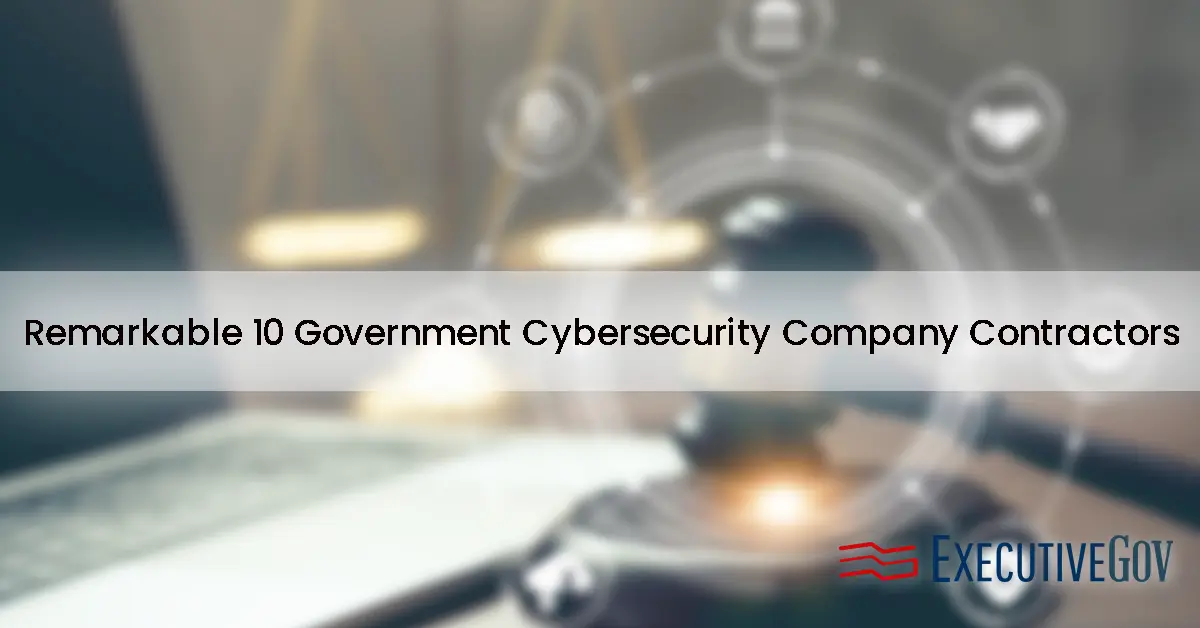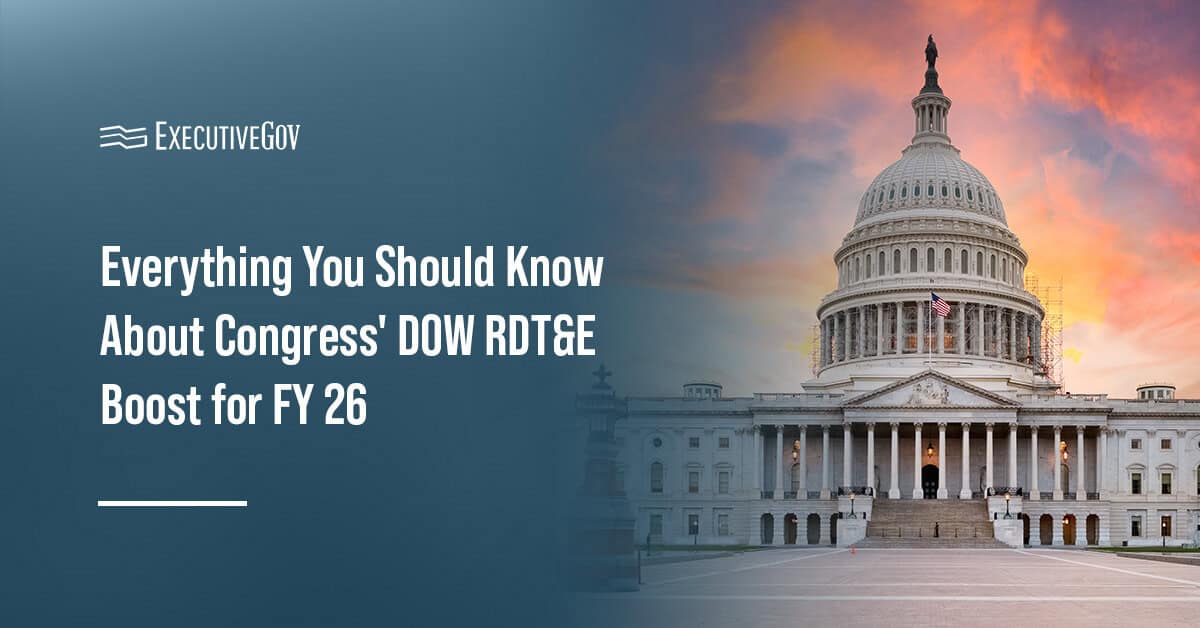Cybersecurity company contractors protect the nation’s digital system amid the constant bombardment of digital threats and hacking. Recognizing these cybersecurity concerns, significant efforts are made to strengthen online defenses.
In line with this, the Cybersecurity and Infrastructure Security Agency (CISA) partners with cybersecurity contractors to strengthen and reduce cyber and physical infrastructure risks. Explore these remarkable cybersecurity company contractors that secure the nation’s digital assets.
Table of Contents
Who are cybersecurity company contractors?

Some cybersecurity contractors stand out as great partners in protecting the nation’s digital systems. These trusted companies handle the tough challenges of cybersecurity, focusing on fortifying cyber defense and defending against cyber threats.
Here are the leading companies that have been awarded major government contracts in recent years.
Note: The following list of leading cybersecurity company contractors is ranked in no particular order. The selection criteria are based on a variety of factors, including market capitalization, revenue, and overall industry impact. That said, while they are highly regarded in the industry, plenty of other companies also offer exceptional products and services.
1. CrowdStrike
CrowdStrike, led by George Kurtz, is a cybersecurity company worth $77 billion. It provides cloud-based antivirus software to help the U.S. The Department of Justice responds to cyber spying.
2. Fortinet
Fortinet offers a range of security products, from routers to its flagship FortiGate firewall and cloud-based Security Fabric. It became a public company in 2009.
3. Palo Alto Networks
Palo Alto Networks has advanced firewalls and cloud-based security features. Through its array of systems, it claims to have stopped more than 8 billion cyber attacks.
4. Cloudflare
Valued at $32 billion, Cloudflare runs a global network of servers that help organizations make their websites faster and more secure with services like Server-Side Encryption (SSE) and Secure Access Service Edge (SASE).
5. Cisco
Networking hardware giant Cisco is a major player in cybersecurity, offering firewalls, intrusion prevention systems, and email security solutions. Its products protect the networks of enterprises, governments, and small businesses from threats and vulnerabilities.
6. Booz Allen Hamilton
Booz Allen Hamilton is a government and commercial cybersecurity consultant. It offers threat intelligence, incident response planning, and risk management to help organizations improve their defensive posture against cyber threats.
7. Microsoft
While primarily known for its software products, Microsoft provides holistic cybersecurity offerings, such as Azure Security and Office 365 Security. It safeguards its clients against data breaches caused by malware phishing attempts.
8. General Dynamics
General Dynamics tailors its cyber defense solutions to suit the government’s needs. It protects classified information systems used within federal agencies and ensures network safety through threat intelligence sharing. Moreover, General Dynamics actively responds to cyber incidents, thus minimizing further risks of attack and exploitation of critical infrastructures through cyberspace.
9. Leidos
Leidos is a globally recognized technology solution provider. It adheres to government-certified standards for conducting transactions internationally. Through Leidos’ risk assessments, penetration tests, and security operations, organizations can effectively identify cyber vulnerabilities before they even occur. It equips them with the capacity to mitigate any potential damage caused by such acts accordingly.
10. Amazon
Amazon is a large technology company that offers cybersecurity through its cloud computing platform, Amazon Web Services (AWS). Some of its notable services include security audits, threat assessment, and data encryption, helping businesses protect their cloud infrastructure from attackers.
What Security Clearances, Rules, and Regulations Apply To Cybersecurity Company Contractors
Leading cybersecurity company contractors are required to adhere to Facility Security Clearance (FCL), especially for sensitive government projects. FCL includes Secret or Top Secret. For example, Leidos asks employees to get Top Secret clearance to keep sensitive information safe while working on cyber projects.
Moreover, cybersecurity company contractors must abide by the rules and regulations set by the government, such as:
- Federal Acquisition Regulation (FAR) 52.204-21 mandates federal government contractors to adhere to 15 safeguarding controls for processing, storing, and transmitting federal contract information.
- President’s Executive Orders (EO) mandate cybersecurity protocols to protect federal information systems from cyber threats.EO 14028 established a Cybersecurity Safety Review Board, jointly chaired by government and private sector leaders. It convenes post-significant cyber incidents to analyze and recommend cybersecurity enhancements.
Additionally, EO13800 strengthens federal networks and the critical infrastructure of cybersecurity.
- National Institute of Standards and Technology (NIST) 800-53 Security and Privacy Controls provides comprehensive guidelines for implementing security controls to safeguard federal information systems and privacy.
Importance of Security Clearances for Cybersecurity Company Contractors
The cybersecurity industry faces several challenges, particularly when working with the government. One of the many reasons security clearance is important for cybersecurity company contractors is to prevent security breaches of sensitive government data.
What happened in the 2020 U.S. government cyberattack led to costly data breaches. After this incident, cybersecurity leaders called for a comprehensive overhaul to protect critical infrastructure and data.
The Current State of Cybersecurity

The government consistently allocates substantial resources to enhance cybersecurity measures amid cybersecurity threats and challenges. A prime example of this allocation is the estimated $18.78 billion budget for cybersecurity spending in 2021. In addition to budget allocation, enhancing cybersecurity requirements remains crucial.
For instance, Microsoft Management Console (MMC) 2.0 was introduced by the DoD on December 26, 2023, as a new cybersecurity certification model. It simplified requirements for contractors into Levels 1, 2, and 3. However, compliance is still challenging and corresponds with existing cybersecurity standards.
Read more: Federal Supply Chain Security: Standards, Practices, and What Companies Need to Know
FAQs
Which government agency is responsible for cybersecurity?
The Cybersecurity and Infrastructure Security Agency (CISA) is responsible for cybersecurity. Since President Biden came into office, he has tasked the CISA with a great deal of responsibility to push cybersecurity across all government activities.
Who are the leading government cybersecurity contractors?
The leading cybersecurity company depends on who offers what organization. Some organizations choose Cisco as it provides excellent networking and security solutions, while others may prefer General Dynamics as it addresses diverse challenges in this rapidly evolving defense field.





